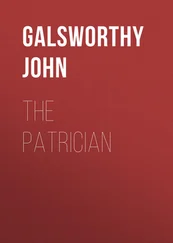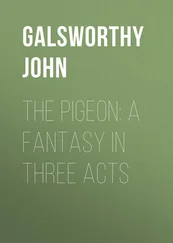John Galsworthy - The Island Pharisees
Здесь есть возможность читать онлайн «John Galsworthy - The Island Pharisees» — ознакомительный отрывок электронной книги совершенно бесплатно, а после прочтения отрывка купить полную версию. В некоторых случаях можно слушать аудио, скачать через торрент в формате fb2 и присутствует краткое содержание. Жанр: foreign_antique, foreign_prose, на английском языке. Описание произведения, (предисловие) а так же отзывы посетителей доступны на портале библиотеки ЛибКат.
- Название:The Island Pharisees
- Автор:
- Жанр:
- Год:неизвестен
- ISBN:нет данных
- Рейтинг книги:5 / 5. Голосов: 1
-
Избранное:Добавить в избранное
- Отзывы:
-
Ваша оценка:
- 100
- 1
- 2
- 3
- 4
- 5
The Island Pharisees: краткое содержание, описание и аннотация
Предлагаем к чтению аннотацию, описание, краткое содержание или предисловие (зависит от того, что написал сам автор книги «The Island Pharisees»). Если вы не нашли необходимую информацию о книге — напишите в комментариях, мы постараемся отыскать её.
The Island Pharisees — читать онлайн ознакомительный отрывок
Ниже представлен текст книги, разбитый по страницам. Система сохранения места последней прочитанной страницы, позволяет с удобством читать онлайн бесплатно книгу «The Island Pharisees», без необходимости каждый раз заново искать на чём Вы остановились. Поставьте закладку, и сможете в любой момент перейти на страницу, на которой закончили чтение.
Интервал:
Закладка:
John Galsworthy
The Island Pharisees
“But this is a worshipful society”
KING JOHNPREFACE
Each man born into the world is born like Shelton in this book – to go a journey, and for the most part he is born on the high road. At first he sits there in the dust, with his little chubby hands reaching at nothing, and his little solemn eyes staring into space. As soon as he can toddle, he moves, by the queer instinct we call the love of life, straight along this road, looking neither to the right nor left, so pleased is he to walk. And he is charmed with everything – with the nice flat road, all broad and white, with his own feet, and with the prospect he can see on either hand. The sun shines, and he finds the road a little hot and dusty; the rain falls, and he splashes through the muddy puddles. It makes no matter – all is pleasant; his fathers went this way before him; they made this road for him to tread, and, when they bred him, passed into his fibre the love of doing things as they themselves had done them. So he walks on and on, resting comfortably at nights under the roofs that have been raised to shelter him, by those who went before.
Suddenly one day, without intending to, he notices a path or opening in the hedge, leading to right or left, and he stands, looking at the undiscovered. After that he stops at all the openings in the hedge; one day, with a beating heart, he tries one.
And this is where the fun begins.
Out of ten of him that try the narrow path, nine of him come back to the broad road, and, when they pass the next gap in the hedge, they say: “No, no, my friend, I found you pleasant for a while, but after that-ah! after that! The way my fathers went is good enough for me, and it is obviously the proper one; for nine of me came back, and that poor silly tenth – I really pity him!”
And when he comes to the next inn, and snuggles in his well-warmed, bed, he thinks of the wild waste of heather where he might have had to spend the night alone beneath the stars; nor does it, I think, occur to him that the broad road he treads all day was once a trackless heath itself.
But the poor silly tenth is faring on. It is a windy night that he is travelling through a windy night, with all things new around, and nothing to help him but his courage. Nine times out of ten that courage fails, and he goes down into the bog. He has seen the undiscovered, and – like Ferrand in this book – the undiscovered has engulfed him; his spirit, tougher than the spirit of the nine that burned back to sleep in inns, was yet not tough enough. The tenth time he wins across, and on the traces he has left others follow slowly, cautiously – a new road is opened to mankind! A true saying goes: Whatever is, is right! And if all men from the world’s beginning had said that, the world would never have begun – at all. Not even the protoplasmic jelly could have commenced its journey; there would have been no motive force to make it start.
And so, that other saying had to be devised before the world could set up business: Whatever is, is wrong! But since the Cosmic Spirit found that matters moved too fast if those that felt “All things that are, are wrong” equalled in number those that felt “All things that are, are right,” It solemnly devised polygamy (all, be it said, in a spiritual way of speaking); and to each male spirit crowing “All things that are, are wrong” It decreed nine female spirits clucking “All things that are, are right.” The Cosmic Spirit, who was very much an artist, knew its work, and had previously devised a quality called courage, and divided it in three, naming the parts spiritual, moral, physical. To all the male-bird spirits, but to no female (spiritually, not corporeally speaking), It gave courage that was spiritual; to nearly all, both male and female, It gave courage that was physical; to very many hen-bird spirits It gave moral courage too. But, because It knew that if all the male-bird spirits were complete, the proportion of male to female – one to ten – would be too great, and cause upheavals, It so arranged that only one in ten male-bird spirits should have all three kinds of courage; so that the other nine, having spiritual courage, but lacking either in moral or in physical, should fail in their extensions of the poultry-run. And having started them upon these lines, it left them to get along as best they might.
Thus, in the subdivision of the poultry-run that we call England, the proportion of the others to the complete male-bird spirit, who, of course, is not infrequently a woman, is ninety-nine to one; and with every Island Pharisee, when he or she starts out in life, the interesting question ought to be, “Am I that one?” Ninety very soon find out that they are not, and, having found it out, lest others should discover, they say they are. Nine of the other ten, blinded by their spiritual courage, are harder to convince; but one by one they sink, still proclaiming their virility. The hundredth Pharisee alone sits out the play.
Now, the journey of this young man Shelton, who is surely not the hundredth Pharisee, is but a ragged effort to present the working of the truth “All things that are, are wrong,” upon the truth “All things that are, are right.”
The Institutions of this country, like the Institutions of all other countries, are but half-truths; they are the working daily clothing of the nation; no more the body’s permanent dress than is a baby’s frock. Slowly but surely they wear out, or are outgrown; and in their fashion they are always thirty years at least behind the fashions of those spirits who are concerned with what shall take their place. The conditions that dictate our education, the distribution of our property, our marriage laws, amusements, worship, prisons, and all other things, change imperceptibly from hour to hour; the moulds containing them, being inelastic, do not change, but hold on to the point of bursting, and then are hastily, often clumsily, enlarged. The ninety desiring peace and comfort for their spirit, the ninety of the well-warmed beds, will have it that the fashions need not change, that morality is fixed, that all is ordered and immutable, that every one will always marry, play, and worship in the way that they themselves are marrying, playing, worshipping. They have no speculation, and they hate with a deep hatred those who speculate with thought. This is the function they were made for. They are the dough, and they dislike that yeasty stuff of life which comes and works about in them. The Yeasty Stuff – the other ten – chafed by all things that are, desirous ever of new forms and moulds, hate in their turn the comfortable ninety. Each party has invented for the other the hardest names that it can think of: Philistines, Bourgeois, Mrs. Grundy, Rebels, Anarchists, and Ne’er-do-weels. So we go on! And so, as each of us is born to go his journey, he finds himself in time ranged on one side or on the other, and joins the choruses of name-slingers.
But now and then – ah! very seldom – we find ourselves so near that thing which has no breadth, the middle line, that we can watch them both, and positively smile to see the fun.
When this book was published first, many of its critics found that Shelton was the only Pharisee, and a most unsatisfactory young man – and so, no doubt, he is. Belonging to the comfortable ninety, they felt, in fact, the need of slinging names at one who obviously was of the ten. Others of its critics, belonging to the ten, wielded their epithets upon Antonia, and the serried ranks behind her, and called them Pharisees; as dull as ditch-water – and so, I fear, they are.
One of the greatest charms of authorship is the privilege it gives the author of studying the secret springs of many unseen persons, of analysing human nature through the criticism that his work evokes – criticism welling out of the instinctive likings or aversions, out of the very fibre of the human being who delivers it; criticism that often seems to leap out against the critic’s will, startled like a fawn from some deep bed, of sympathy or of antipathy. And so, all authors love to be abused – as any man can see.
Читать дальшеИнтервал:
Закладка:
Похожие книги на «The Island Pharisees»
Представляем Вашему вниманию похожие книги на «The Island Pharisees» списком для выбора. Мы отобрали схожую по названию и смыслу литературу в надежде предоставить читателям больше вариантов отыскать новые, интересные, ещё непрочитанные произведения.
Обсуждение, отзывы о книге «The Island Pharisees» и просто собственные мнения читателей. Оставьте ваши комментарии, напишите, что Вы думаете о произведении, его смысле или главных героях. Укажите что конкретно понравилось, а что нет, и почему Вы так считаете.












